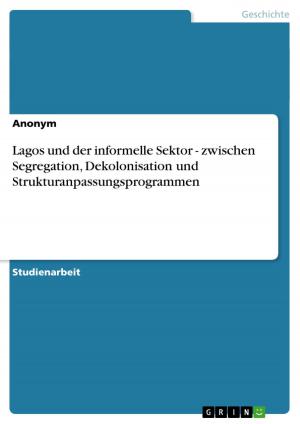Theories of the firm - neoclassical and managerial decision making
neoclassical and managerial decision making
Business & Finance, Economics, Macroeconomics| Author: | Daniel Bradtke | ISBN: | 9783638542579 |
| Publisher: | GRIN Verlag | Publication: | September 8, 2006 |
| Imprint: | GRIN Verlag | Language: | English |
| Author: | Daniel Bradtke |
| ISBN: | 9783638542579 |
| Publisher: | GRIN Verlag |
| Publication: | September 8, 2006 |
| Imprint: | GRIN Verlag |
| Language: | English |
Seminar paper from the year 2004 in the subject Economics - Macro-economics, general, grade: 1,6, University of Wales, Newport,, course: Course Title: Decision Making (B.Sc. Business Undergraduate Programme), 15 entries in the bibliography, language: English, abstract: For a long time, economists have seen the firm as a black box, arguing that firms maximise profits. Without following this ultimate goal, economists say that organisations would not survive in competitive markets (Makamason, 2004). In order not to be replaced, managers would have to comply with the objective of profit (value) maximisation. Hart (1989) says that this 'neoclassical' view of the firm has been challenged considerably over the last three decades due to theoretical developments and increasing empirical evidence that managers may not pursue shareholder interests. The key assumptions of the traditional theory of the firm are maximisation of profit and decision making under conditions of perfect knowledge (Nellis and Parker, 2002). By ignoring many other involved complexities, this neoclassical approach has the ability to predict corporate behaviour in perfectly competitive and monopoly market structures. The maximisation assumption portrays the firm as a 'single market, single product asset of the owner who adapts a production plan in response to changing market conditions' (Makamason, 2004). Its prolonged survival is due to the useful analysis of how a firm's production choices respond to exogenous change in the environment. Such an example being an increase in wages or a sales tax (Loasby, 1989).
Seminar paper from the year 2004 in the subject Economics - Macro-economics, general, grade: 1,6, University of Wales, Newport,, course: Course Title: Decision Making (B.Sc. Business Undergraduate Programme), 15 entries in the bibliography, language: English, abstract: For a long time, economists have seen the firm as a black box, arguing that firms maximise profits. Without following this ultimate goal, economists say that organisations would not survive in competitive markets (Makamason, 2004). In order not to be replaced, managers would have to comply with the objective of profit (value) maximisation. Hart (1989) says that this 'neoclassical' view of the firm has been challenged considerably over the last three decades due to theoretical developments and increasing empirical evidence that managers may not pursue shareholder interests. The key assumptions of the traditional theory of the firm are maximisation of profit and decision making under conditions of perfect knowledge (Nellis and Parker, 2002). By ignoring many other involved complexities, this neoclassical approach has the ability to predict corporate behaviour in perfectly competitive and monopoly market structures. The maximisation assumption portrays the firm as a 'single market, single product asset of the owner who adapts a production plan in response to changing market conditions' (Makamason, 2004). Its prolonged survival is due to the useful analysis of how a firm's production choices respond to exogenous change in the environment. Such an example being an increase in wages or a sales tax (Loasby, 1989).















